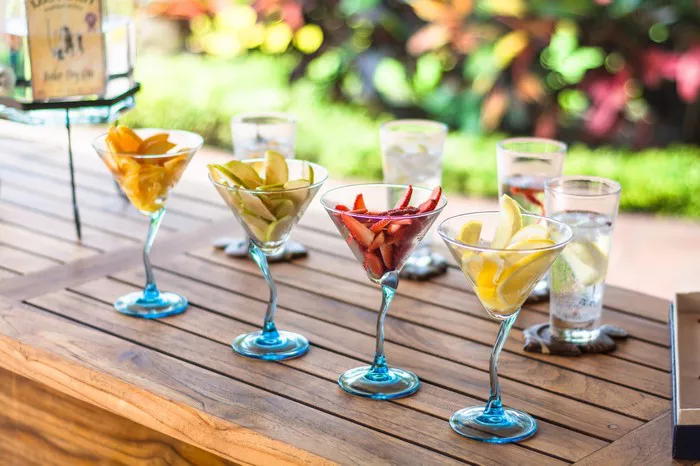The question of whether cocktails are healthier than wine is a topic that has intrigued health-conscious individuals and enthusiasts of both beverages alike. As society becomes more health-aware, the desire to make informed choices about alcohol consumption has increased. In this article, we delve into the nuances of cocktails and wine, exploring their respective health benefits and risks to uncover which might hold the upper hand in terms of healthiness.
Understanding the Ingredients: Comparing Cocktails and Wine
At the heart of the debate lies the composition of cocktails and wine. Cocktails typically involve a combination of spirits, mixers, and garnishes, offering a wide array of flavors and textures. In contrast, wine is made predominantly from fermented grapes, with variations stemming from grape variety, region, and production methods. Both beverages contain alcohol, a psychoactive substance with varying effects on health depending on consumption levels.
Nutritional Content: What Do Cocktails and Wine Offer?
When assessing the nutritional content of cocktails and wine, it’s essential to consider factors beyond just calories. While wine primarily consists of water and alcohol, it also contains antioxidants such as resveratrol, known for its potential cardiovascular benefits. Cocktails, on the other hand, can vary significantly depending on ingredients. Some cocktails, particularly those made with fresh fruits and herbs, may offer vitamins and minerals alongside alcohol. However, many cocktails contain added sugars and syrups, which can contribute to excess calorie intake and negate potential health benefits.
Caloric Impact: Which Packs a Heavier Punch?
Calories are a crucial consideration for those monitoring their weight or seeking to maintain a healthy lifestyle. Cocktails, especially those made with sugary mixers and liqueurs, can be calorie-dense. On the contrary, wine generally contains fewer calories per serving compared to many cocktails. However, portion size plays a significant role in overall calorie intake. A standard serving of wine is typically around 5 ounces, while cocktails can vary widely in volume and alcohol content. As such, moderation is key to managing calorie consumption regardless of beverage choice.
Alcohol Content: Finding the Balance
Alcohol content is a crucial factor in determining the healthiness of cocktails versus wine. While wine typically contains between 10% and 15% alcohol by volume (ABV), cocktails can vary significantly depending on the type and quantity of spirits used. Cocktails with higher alcohol content may increase the risk of alcohol-related health issues, including liver damage, addiction, and impaired cognitive function. Conversely, moderate alcohol consumption has been associated with certain health benefits, such as reduced risk of heart disease and improved insulin sensitivity.
Mixers and Additives: The Hidden Culprits
One of the distinguishing features between cocktails and wine is the presence of mixers and additives in cocktails. While wine is a relatively pure beverage, cocktails often contain a plethora of ingredients beyond alcohol, including fruit juices, syrups, and soda. These mixers can significantly impact the nutritional profile of cocktails, adding calories, sugars, and artificial additives. Excessive consumption of sugary cocktails can contribute to weight gain, insulin resistance, and other adverse health effects. In contrast, opting for cocktails made with fresh, natural ingredients may offer a healthier alternative.
Moderation: The Key to Responsible Drinking
Ultimately, the healthiness of cocktails versus wine boils down to moderation and mindful consumption. Both beverages can be enjoyed as part of a balanced lifestyle when consumed in moderation. For wine enthusiasts, sticking to recommended serving sizes and opting for dry wines with lower sugar content can help mitigate potential health risks. Similarly, cocktail aficionados can enjoy their favorite concoctions responsibly by choosing recipes that prioritize fresh, natural ingredients and limiting intake to avoid excessive alcohol consumption.
Conclusion: Striking a Balance
In the ongoing debate of whether cocktails are healthier than wine, the answer lies in striking a balance between enjoyment and moderation. While wine offers certain health benefits due to its antioxidant content and relatively low calorie count, cocktails can be enjoyed responsibly when made with quality ingredients and consumed in appropriate quantities. Ultimately, making informed choices based on individual preferences and health goals is key to enjoying alcoholic beverages while maintaining overall well-being. So, whether you prefer a crisp glass of wine or a meticulously crafted cocktail, remember that moderation is the cornerstone of a healthy relationship with alcohol.


